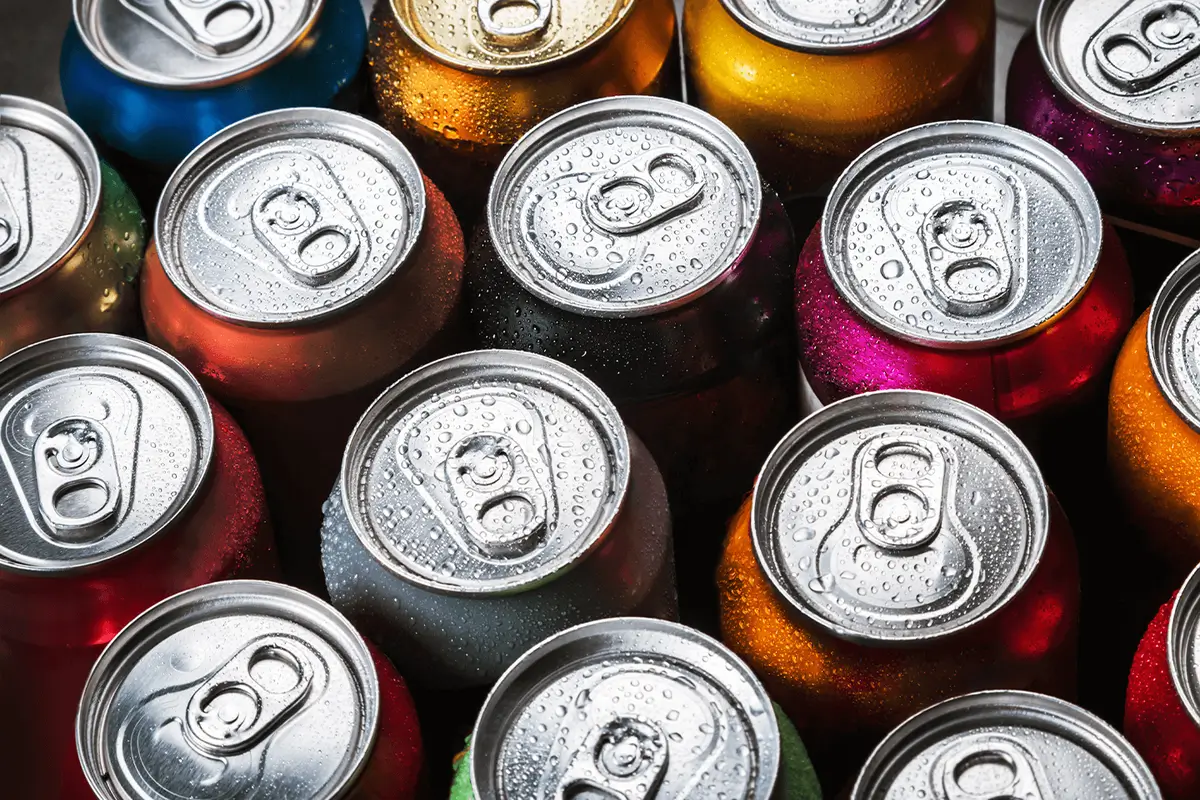Many energy drinks are loaded with sugar and artificial ingredients, making them less than ideal for those seeking a healthier boost. However, it is possible to find options that offer natural ingredients, low sugar, and balanced caffeine levels to provide sustained energy without the typical crash.
Healthy energy drinks often contain natural sources of caffeine like green tea or yerba mate, include beneficial vitamins, and avoid excessive added sugars and artificial additives. These choices support better energy and focus while minimizing negative side effects.
Consumers looking for a healthier alternative should focus on drinks that prioritize transparent ingredient lists and moderate caffeine content. Brands that emphasize natural ingredients and include supportive nutrients are increasingly available for those who want an energy lift without compromising health.
What Makes an Energy Drink Healthy?
A healthy energy drink provides more than just caffeine. It offers balanced nutrition, minimal harmful additives, and appropriate caffeine levels to support energy without negative side effects. The choice of sweeteners and sugar content also plays a major role in determining overall health impact.
Key Nutritional Ingredients
Healthy energy drinks often include B vitamins, especially B6 and B12, which help convert food into usable energy. Electrolytes like sodium, potassium, and magnesium can aid in hydration and muscle function, particularly during physical activity. Some drinks feature antioxidants or amino acids, such as taurine, to support recovery and mental alertness.
It is important that these nutrients are present in meaningful amounts, rather than trace levels, to contribute effectively to energy and wellbeing. Drinks lacking essential micronutrients but high in caffeine and sugar are less likely to be considered healthy.
Natural vs. Artificial Sweeteners
Natural sweeteners like stevia, monk fruit, or small amounts of cane sugar are preferred over artificial options such as sucralose or aspartame. It tend to have fewer aftertastes and lower risks of adverse health effects.
Artificial sweeteners, although calorie-free, can sometimes cause digestive issues and have limited research regarding long-term safety. Drinks using natural sweeteners help reduce calorie load without sacrificing taste and are better aligned with a health-focused approach.
Caffeine Sources and Levels
Caffeine in healthy energy drinks typically comes from natural sources such as green tea extract, guarana, or coffee bean extract. These sources provide antioxidants along with the caffeine boost.
The caffeine content should ideally stay within 100 to 200 milligrams per serving, enough to enhance focus and stamina without causing jitteriness or crashes. Excessive caffeine, especially above 300 mg, raises risks for heart palpitations, anxiety, and sleep disturbances.
Sugar Content Comparison
Sugar content is a major factor distinguishing healthy from unhealthy energy drinks. Healthy options usually contain less than 5 grams of sugar per serving or use no added sugars at all.
High sugar levels — often exceeding 20 to 30 grams per serving — can lead to energy crashes and long-term metabolic issues. Choosing low-sugar or sugar-free drinks reduces calorie intake, avoids blood sugar spikes, and minimizes risks related to insulin resistance and obesity.
Top Healthy Energy Drink Options
Many healthier energy drinks focus on clean ingredient lists, balanced caffeine content, and suitability for various lifestyles. Recognizing popular brands, understanding ingredient quality, and matching products to personal needs are essential for making informed choices.
Popular Brands and Products
Some brands stand out for prioritizing natural ingredients and minimizing sugar. Impossible Energy offers zero sugar and no artificial sweeteners, making it a top choice for clean energy.
Other notable products include Uptime and Zevia, both offering low-sugar options with caffeine levels typically under 200 mg per serving. These brands avoid artificial additives while delivering effective energy boosts.
Natural choices like matcha-based drinks or beverages made from green or black tea provide caffeine with antioxidants. They appeal to those who prefer plant-derived caffeine without synthetic substances.
Evaluating Ingredient Lists
A healthy energy drink should avoid high sugar, artificial dyes, and excessive additives. Key beneficial ingredients include B vitamins, natural caffeine, and herbal extracts like ginseng.
Caffeine content between 80 mg and 200 mg strikes a balance between effectiveness and safety. Drinks exceeding 200 mg may cause jitteriness or other side effects.
Avoiding artificial sweeteners and colors reduces health risks. Consumers should look for clear labels and recognizable ingredients. Organic certification and non-GMO status add additional confidence in quality.
| Ingredient | Importance | Healthy Range/Type |
| Caffeine | Provides energy boost | 80–200 mg per serving |
| Sugar | Should be minimal or zero | 0–5 grams per serving |
| B vitamins | Supports metabolism and energy | Present but not excessive |
| Artificial additives | Avoid for safety | None or minimal |
| Herbal extracts | Can enhance focus and stamina | Ginseng, green tea, matcha |
Best Options for Different Lifestyles
Athletes may benefit from energy drinks with added electrolytes and moderate caffeine for endurance. Brands focused on fitness often include natural stimulants and vitamins for recovery.
Busy professionals might prefer low-sugar, moderate caffeine drinks that provide sustained alertness without crashes. Options with adaptogens or nootropics can enhance focus during long workdays.
Those sensitive to caffeine can turn to natural alternatives like lightly brewed green tea or kombucha-based energy drinks. These provide gentle stimulation with additional health benefits.
Consumers with dietary restrictions should verify labels for allergens and intolerances. Sugar-free, vegan, and gluten-free formulations are increasingly available to meet diverse needs.

